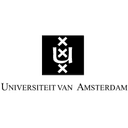Enhance your laboratory teaching skills with proven strategies for active learning and student engagement.
Enhance your laboratory teaching skills with proven strategies for active learning and student engagement.
This course, developed by the European Chemistry Thematic Network, focuses on improving the effectiveness of laboratory teaching in higher education. Designed for science educators, it provides comprehensive guidance on structuring laboratory sessions, engaging students, and implementing effective assessment methods. Participants learn to handle different student knowledge levels, develop questioning techniques, and create rubrics for evaluation, all while promoting active learning in science laboratory environments.
4.7
(124 ratings)
11,648 already enrolled
Instructors:
English
What you'll learn
Identify purposes and goals of laboratory classes in higher education
Implement strategies to increase student engagement
Develop effective questions to assess student understanding
Create assessment rubrics for laboratory activities
Apply learning theories to laboratory teaching practice
Design effective pre-laboratory activities
Skills you'll gain
This course includes:
28 Minutes PreRecorded video
6 assignments
Access on Mobile, Tablet, Desktop
FullTime access
Shareable certificate
Get a Completion Certificate
Share your certificate with prospective employers and your professional network on LinkedIn.
Created by
Provided by

Top companies offer this course to their employees
Top companies provide this course to enhance their employees' skills, ensuring they excel in handling complex projects and drive organizational success.





There are 7 modules in this course
This comprehensive course covers the fundamentals of effective laboratory teaching in higher education. The curriculum explores various aspects of laboratory instruction, from planning and preparation to assessment and feedback. Topics include different types of laboratory sessions, student engagement strategies, learning theories, questioning skills, and rubric development. Through practical examples and peer review activities, participants learn to create effective learning environments and improve student outcomes.
Module 1: Welcome and introduction
Module 1 · 2 Hours to complete
The Good Laboratory Teacher - Tips and Strategies
Module 2 · 2 Hours to complete
Learning Theories in Practice
Module 3 · 2 Hours to complete
Giving Instructions and Questioning Skills
Module 4 · 2 Hours to complete
Assessment and Feedback
Module 5 · 2 Hours to complete
Reflection
Module 6 · 1 Hours to complete
Optional additional week to complete the course
Module 7 · 2 Hours to complete
Fee Structure
Payment options
Financial Aid
Instructors
Chemistry Education Expert Advancing Research in Student Learning and Laboratory Methods
Mauro Mocerino is an Associate Professor specializing in chemistry education and research methodology. His work focuses on developing innovative teaching approaches to enhance students' understanding of chemical reactions and molecular structures. He has made significant contributions to the field through his research on multiple-choice diagnostic instruments and virtual reality applications in science learning. His expertise extends to improving laboratory teaching methods and student engagement in chemistry education, with particular emphasis on developing effective pre-laboratory exercises and assessment tools. Through his research and teaching, he continues to advance the field of chemistry education by implementing innovative pedagogical approaches and technology-enhanced learning methods.
Science Education Expert Specializing in Laboratory Teaching Methodologies
Natasa Brouwer is a distinguished educator at the University of Amsterdam, focusing on improving science education through innovative laboratory teaching methods. Her expertise lies in developing best practices for university science laboratories, which she shares through her online course "Teaching in University Science Laboratories." As a PhD holder, she contributes significantly to advancing pedagogical approaches in science education, particularly in laboratory settings. Her work emphasizes the importance of developing effective teaching methodologies that enhance student learning experiences in scientific disciplines.
Testimonials
Testimonials and success stories are a testament to the quality of this program and its impact on your career and learning journey. Be the first to help others make an informed decision by sharing your review of the course.
Frequently asked questions
Below are some of the most commonly asked questions about this course. We aim to provide clear and concise answers to help you better understand the course content, structure, and any other relevant information. If you have any additional questions or if your question is not listed here, please don't hesitate to reach out to our support team for further assistance.



